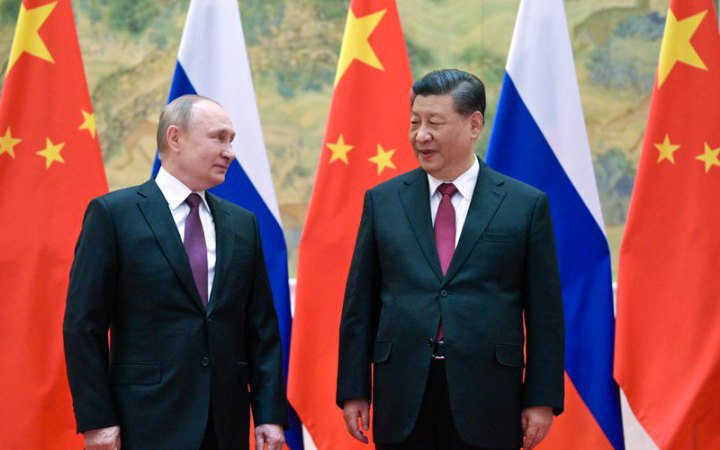During a meeting in Moscow back in March 2023, Putin told Chinese leader Xi Jinping that Russia would "fight for [at least] five years" in Ukraine, the Japanese newspaper Nikkei reported, citing its own sources.
At the time, the situation was not favourable for Russia, and Putin wanted to assure Xi that Russia would eventually emerge victorious.
The likely implication was that a protracted war would benefit Russia, so Xi should not change his pro-Russian stance.
The trip was Xi's first trip to Russia since Moscow launched its full-scale invasion of Ukraine in February 2022. It was also the first time Xi visited a foreign country after China lifted its strict anti-covid policy.
The New York Times recently reported that since at least September, Putin has been using proxies to signal that he is open to a ceasefire, provided Russia can retain the territories it occupies.
But given Putin's remarks to Chinese President Xi in March, as reported by multiple sources familiar with diplomatic manoeuvres between China and Russia, the Russian leader's intentions for a ceasefire should not be taken at face value.
Perhaps Putin simply wants to create the illusion that he is moving towards a ceasefire or even peace ahead of Russia's presidential election in March, believing that such an atmosphere will favour him in the polls.
At the same time, Xi has revised his strategy, partly based on Putin's "five years" remark in March.
If the war between Russia and Ukraine drags on, it will have a significant impact on Xi's plans and ambitions during his unprecedented third term as president of China and general secretary of the Communist Party of China. It could also affect Xi's grand goal of unifying Taiwan with mainland China.
But it is unlikely that Xi Jinping was completely convinced by Putin's remarks. Xi has already been holding a grudge against Putin since the Sino-Russian summit held on 4 February 2022, the opening day of the 2022 Beijing Winter Olympics.
Putin was the only leader from a major power to attend the opening ceremony, and Xi has staked his reputation on China's successful hosting of the international sporting extravaganza. The Russian leader took full advantage of China's sense of indebtedness to him.
During the Winter Olympics summit, Putin showed no signs that he was going to launch a full-scale invasion of Ukraine. But that invasion took place on 24 February with lightning speed, with Russia believing it would be powerful enough to defeat the Ukrainian government in Kyiv.
This sudden Russian attack on Ukraine caused panic in China. Xi did not expect a full-scale invasion, especially one that would take place just four days after the close of the Beijing Winter Olympics and a week before the opening of the Winter Paralympics.
Thus, China simply could not fully trust Putin's "5 years of war" statement a year later.
Given the complex international political situation, China had to think about how to protect its own interests, regardless of how the events in Ukraine might end up for Russia.
And that meant sending a "peace mission" to Europe, including Ukraine and Russia, less than two months after Putin told Xi Jinping that Russia would continue to fight for years to come. The mission showed little change in Xi's pro-Russian stance.
It was also in line with Xi's oft-repeated claim that the world is undergoing "profound changes not seen in a century".
If the war in Ukraine were to last as long as five years - it has already been going on for almost two years - China would be under more pressure from Western countries than ever because of its extensive military cooperation with Russia.
China's already suffering economy would be further hit by the measures imposed by the international coalition against China and Russia. This gave China another reason to send this peacekeeping mission: it needed to hedge against Russia's fate.
The Chinese mission, led by Beijing's special representative for Eurasia, Li Hui, met with Ukrainian President Volodymyr Zelenskyy in Kyiv.
This mission caused Putin's dissatisfaction, perhaps even irritation. The diplomatic move went against the Russian leader's wishes.








